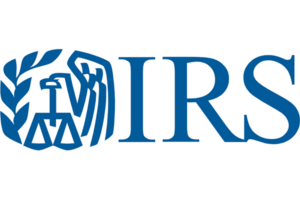 The U.S. Department Of Justice Files Suit To Enforce An IRS Summons Against The Delaware Department Of Insurance For Artex Transactions tax shelters.
The U.S. Department Of Justice Files Suit To Enforce An IRS Summons Against The Delaware Department Of Insurance For Artex Transactions tax shelters.
tax shelters. On June 19, 2020, the Tax Division of the U.S. Department of Justice filed a Petition To Enforce Summons against the Delaware Department Of Insurance, which seeks testimony and certain documents relating to Artex Risk Solutions, Inc. and Tribeca Strategic Advisors, LLC in connection with its promoter audits of those companies. Concurrently with the Petition, the DOJ also filed the Declaration of IRS Revenue Agent Bradley Keltner and the Summons that it is attempting to enforce. Artex/Tribeca is affiliated with publicly-traded Arthur J. Gallagher.
According to the Petition, the IRS is conducting a promoter audit, known as a “6700 audit” from § 6700 of the U.S. Tax Code that creates penalties for the promoters of tax shelters. In this case, says the Petition the IRS is investigating whether Artex and Tribeca marketed and sold so-called “micro captives”, i.e., captive insurance companies qualifying under IRC § 831(b), as tax shelters — which for both Artex and Tribeca is like wading out into the ocean to look for water. The Petition also notes that a class action (Shivkov v. Artex), which I have written about previously, had been brought against Artex and others for not telling their clients that they were entering into an abusive tax transaction.
The Petition goes on to say that the Delaware Department Of Insurance (DDOI) issued 191 insurance certificates to companies associated with Artex, and that the information sought by the IRS might indicate whether Artex made false or misleading statements in organizing those captives. For instance, according to the Petition, there are instances where the DDOI was apparently complicit in backdating Delaware certificates of authority (basically, insurance licenses), such as one was where the certificate was backdated almost two months from February 25, 2013 back to December 31, 2012 — after which Artex then rewarded six
According to the Petition, the DDOI has failed to fully comply with the IRS Summons directed to it, such as failing to produce all the e-mails between the DDOI and Artex (and its predecessor Tribeca).
More juicy facts are found in the sworn Declaration of IRS Revenue Agent Bradley Keltner, including that the DDOI has so far turned over to the IRS over 18,331 pages of documents related to 16 Delaware captives.
ANALYSIS
As shocking as the allegations of backdating and complicity in tax shelter schemes might be to the reader who is unfamiliar with the area of captive insurance tax shelters, this is simply what has gone on for the last decade with the insurance departments of several states that have served as mass outlets for risk-pooled 831(b) captive insurance companies. While the Delaware Department of Insurance may be the first to be caught in backdating documents, I can assure you that they are not the only such department to have done it.
The hard truth is that the so-called micro captive tax shelter industry utilizes a lot of — well, let’s just call them what they are — corrupt co-conspirators. The industry requires actuaries who anticipate huge losses from year to year even though those losses have never actually materialized in any year, underwriters who intentionally draft policies so that nobody can figure out what is actually being covered, accountants who turn a blind eye to numerous red flags, lawyers who write opinion letters of dubious validity, and at the center of it all the captive managers who market, sell and keep the clients writing checks to everybody.
There is one more necessary piece to this puzzle, one more group of corrupt co-conspirators for which the entire scheme would fail in the absence of their misdeeds: The state “captive commissioners” and the unit within the state’s insurance department that oversees captive insurance companies. For each and every captive tax shelter relies very heavily on that one sheet of paper — the captive’s license or certificate or authority — without which the shelter would be stillborn. And corruptly conspire they do.
The captive deputies have a powerful incentive to sell as many captives as they can, without regard to the quality of any individual captive. Bigger numbers means more revenue generated by their sections, which leads to bigger staff, greater prestige, and sometimes higher salaries. The departments are themselves frequently willing to turn a blind eye towards what their captive sections are doing, because the department can report to the state legislature a larger number of licenses issued, and thus seek a bigger budget. But between states, the captive insurance marketplace is very competitive: Most of the states have more-or-less the same captive statutes, and if one enacts something better then the rest follow quickly, and most of the states charge about the same for their insurance licenses.
What that leaves is something known as the captive industry as “flexibility”, which means that while most insurance departments are restrained by doing things by the book, have rigorous internal controls, and no backdating a document. A few other insurance departments don’t quite have the same scruples. Instead, some of the captive jurisdictions have earned reputations as being “flexible”. That means that they will bend, break or simply ignore the rules to facilitate the licensure of a new tax sheltered captive. The captives they are licensing don’t make any economic sense but are simply formed for the purpose of cheating Uncle Sam out of a few bucks in taxes. The regulators go along with it because they benefit too. Thus, ignoring or twisting their own rules in the name of “flexibility” as to what constitutes a legitimate captive. These regulators indeed became corrupt co-conspirators too.
Note that “flexibility” is not just in allowing the formation of the captive, but how the captive continues to be regulated in the following years. Here is where the captive deputies really show their complicity in running tax shelters, since they see the same captive managers and same actuaries submitting reporters over and over which predict that losses will be X in the coming year, but it turns out very consistently that the actual losses were actually less than 5% of X. In the real insurance world, consistently missing predicted losses by such a huge margin would be pretty good evidence that false actuarial studies were being submitted, but it is here that the captive deputies know that if they required accurate reporting, then the captives couldn’t charge as much premiums as their clients want for their tax deductions, and everybody would lose business — so the captive deputies simply ignore it all.
This is exactly where the “flexible” insurance departments engage in what cannot be characterized as anything short of tax fraud, i.e., issuing insurance certificates based on actuarial studies that are obviously inaccurate just so that the ultimate taxpayers can generate a false deduction through the vehicle of falsely-inflated premiums. While a tax shelter promoter taking a half-dozen employees of the DDOI to breakfast isn’t exactly the most corrupt quid pro quo, it does illustrate the fundamental coziness between the insurance departments who rely upon the promoters to bring licensure business in, and the promoters who rely upon the insurance departments to issue captive licenses no matter how obviously the application indicates a tax shelter captive.
 Delaware was one of the first “flexible” jurisdictions, and at captive conferences for years the folks of the Delaware Department of Insurance went out of its way to express to the industry that Delaware was open for “pure tax” captives, so long as application fee checks cleared. Thus, in just a few years, Delaware went from being a state with few captives to being one of the most prolific issuers of captive licenses; 191 to Artex alone as the Petition here states.
Delaware was one of the first “flexible” jurisdictions, and at captive conferences for years the folks of the Delaware Department of Insurance went out of its way to express to the industry that Delaware was open for “pure tax” captives, so long as application fee checks cleared. Thus, in just a few years, Delaware went from being a state with few captives to being one of the most prolific issuers of captive licenses; 191 to Artex alone as the Petition here states.
Shortly thereafter, two other states, Tennessee and North Carolina, also exploded in the number of their captive licenses issues also because they were holding themselves out as “flexible” — it would frankly surprise me to find out that of each of Tennessee and North Carolina’s hundreds of captive licenses issued, either one has more than a handful of micro captives that are not just tax shelters. Because Delaware is a corporate hub, it probably has a goodly number of legitimate captives, but I would similarly be surprised if less than 90% of its micro captives are not of the tax shelter varietal.
Where Delaware really kicked the sales of tax shelter micro captives into overdrive was in the area of so-called “cell captives” which are organized as Delaware Series LLCs. The idea here was that a tax shelter promoter could form just one parent captive, and then have a bunch of children captives of that parent in which their clients could participate. These cell captives were sold by the bushel to folks who could not afford sufficient premiums to make their own standalone captives worthwhile, such as doctors and other small businesspersons who had high incomes who were looking to shelter income.
Interestingly, the insurance departments of other states quickly replicated this model so that they could also get their piece of the cell captive tax shelter pie by licensing individual cells of Delaware Series LLC in their own states. Tennessee, for instance, licensed a lot of these. The percentage of legitimate captives in these Series LLC programs is very low, probably less than 5%. If a state regulator cross-indexed those captives organized as Delaware Series LLCs against those whose losses were less than 20% of premiums for two consecutive years, the resulting list of captives could safe be put into the “terminate immediately” pile.
One would think that when the IRS issued Notice 2016-66 and listed captives as a “transaction of interest” that such would have put the kibosh on the states aggressively competing for tax sheltered captive sales, but in fact the last several years have seen the rise of a new regulatory player in this sector, albeit not quite a state: Puerto Rico. The captive programs coming out of Puerto Rico take abusive to an entirely new level, and office of the Puerto Rico insurance commissioner seems to welcome that business with open arms.
Meanwhile, captive managers in the “flexible” states continue to market and sell abusive micro captive programs, albeit they are working much harder to try to make it appear (falsely) that they are only selling captives for bona fide insurance reasons. Where many other states that offer captive licenses have significantly backed off taking new micro captive business, there are still a few states out there that are hungry for new business no matter how much it smells. These insurance departments still want to go to their legislatures for bigger budgets, bigger staffs, more prestige, etc., and it that takes complicity in tax fraud then that is what it takes. And they’ll keep getting IRS Summons as here too.
 Finally, it is hard to figure out why Gallagher continues to hold on to Artex other than maybe blind speculation that Gallagher affirmatively wants to be in the tax shelter business. Otherwise, it makes little sense. Buying Tribeca made little sense to begin with, since it was a notorious tax shelter captive shop that had all the subtlety of a hooker wearing skimpy clothing who waives at cars passing by, and fit nowhere in Gallagher’s traditional business model.
Finally, it is hard to figure out why Gallagher continues to hold on to Artex other than maybe blind speculation that Gallagher affirmatively wants to be in the tax shelter business. Otherwise, it makes little sense. Buying Tribeca made little sense to begin with, since it was a notorious tax shelter captive shop that had all the subtlety of a hooker wearing skimpy clothing who waives at cars passing by, and fit nowhere in Gallagher’s traditional business model.
The Artex/Tribeca deal has to go down as one of the singularly worst transactions in Gallagher’s history, and indeed Gallagher now finds itself on the wrong end of a class action suit because of it all. Strange; it seems like maybe Gallagher’s Board of Directors is asleep at the controls on this one. They would be well advised to just totally axe Artex, move its assets and legitimate non-tax business to a new insurance company that doesn’t have any of Tribeca’s taint, and vow never to do anything like this again. But somehow Artex survives. Again, strange.
I have been an expert witness in captive insurance cases. This article is from Jay Adkinson. If you are in a captive you need help NOW.
 Tax practitioners should be cognizant of the Internal Revenue Service (“IRS”) increasing and focused activity related to micro-captive insurance companies (hereinafter referred to as Captive Insurances. Captive Insurance Risk Alert
Tax practitioners should be cognizant of the Internal Revenue Service (“IRS”) increasing and focused activity related to micro-captive insurance companies (hereinafter referred to as Captive Insurances. Captive Insurance Risk Alert

 Shortly after the Internal Revenue Service once again warned taxpayers to steer clear of unscrupulous promoters selling abusive micro-captives. It is part of the IRS annual Dirty Dozen listing. The IRS Large Business and International (LB&I) Division touted the success of its partnership with the Small Business/Self-Employed Division in carrying out the micro-captive campaign.
Shortly after the Internal Revenue Service once again warned taxpayers to steer clear of unscrupulous promoters selling abusive micro-captives. It is part of the IRS annual Dirty Dozen listing. The IRS Large Business and International (LB&I) Division touted the success of its partnership with the Small Business/Self-Employed Division in carrying out the micro-captive campaign.
 Since the time when micro-captive insurance companies were placed on the
Since the time when micro-captive insurance companies were placed on the 
 The U.S. Department Of Justice Files Suit To Enforce An IRS Summons Against The Delaware Department Of Insurance For Artex Transactions
The U.S. Department Of Justice Files Suit To Enforce An IRS Summons Against The Delaware Department Of Insurance For Artex Transactions  Delaware was one of the first “flexible” jurisdictions, and at captive conferences for years the folks of the Delaware Department of Insurance went out of its way to express to the industry that Delaware was open for “pure tax” captives, so long as application fee checks cleared. Thus, in just a few years, Delaware went from being a state with few captives to being one of the most prolific issuers of captive licenses; 191 to Artex alone as the Petition here states.
Delaware was one of the first “flexible” jurisdictions, and at captive conferences for years the folks of the Delaware Department of Insurance went out of its way to express to the industry that Delaware was open for “pure tax” captives, so long as application fee checks cleared. Thus, in just a few years, Delaware went from being a state with few captives to being one of the most prolific issuers of captive licenses; 191 to Artex alone as the Petition here states. Finally, it is hard to figure out why Gallagher continues to hold on to Artex other than maybe blind speculation that Gallagher affirmatively wants to be in the tax shelter business. Otherwise, it makes little sense. Buying Tribeca made little sense to begin with, since it was a notorious tax shelter captive shop that had all the subtlety of a hooker wearing skimpy clothing who waives at cars passing by, and fit nowhere in Gallagher’s traditional business model.
Finally, it is hard to figure out why Gallagher continues to hold on to Artex other than maybe blind speculation that Gallagher affirmatively wants to be in the tax shelter business. Otherwise, it makes little sense. Buying Tribeca made little sense to begin with, since it was a notorious tax shelter captive shop that had all the subtlety of a hooker wearing skimpy clothing who waives at cars passing by, and fit nowhere in Gallagher’s traditional business model.



 The Internal Revenue Service (IRS) has extended the deadline for the micro-captive insurance filing positions from 4 May to 4 June 2020 due to the current COVID-19 pandemic.
The Internal Revenue Service (IRS) has extended the deadline for the micro-captive insurance filing positions from 4 May to 4 June 2020 due to the current COVID-19 pandemic.
 T
T

 Tax law generally allows businesses to create “captive” insurance companies to protect against certain risks. Under section 831(b) of the Internal Revenue Code, certain small insurance companies can choose to pay tax only on their investment income. In abusive “micro-captive” structures, promoters, accountants or wealth planners persuade owners of closely held entities to participate in schemes that lack many of the attributes of genuine insurance.
Tax law generally allows businesses to create “captive” insurance companies to protect against certain risks. Under section 831(b) of the Internal Revenue Code, certain small insurance companies can choose to pay tax only on their investment income. In abusive “micro-captive” structures, promoters, accountants or wealth planners persuade owners of closely held entities to participate in schemes that lack many of the attributes of genuine insurance. The initiative is currently limited to taxpayers with at least one open year under exam. Taxpayers who also have unresolved years under the jurisdiction of the IRS Appeals may also be eligible, but those with pending docketed years under Counsel’s jurisdiction are not eligible. The IRS is continuing to assess whether the settlement offer should be expanded to others.
The initiative is currently limited to taxpayers with at least one open year under exam. Taxpayers who also have unresolved years under the jurisdiction of the IRS Appeals may also be eligible, but those with pending docketed years under Counsel’s jurisdiction are not eligible. The IRS is continuing to assess whether the settlement offer should be expanded to others.
